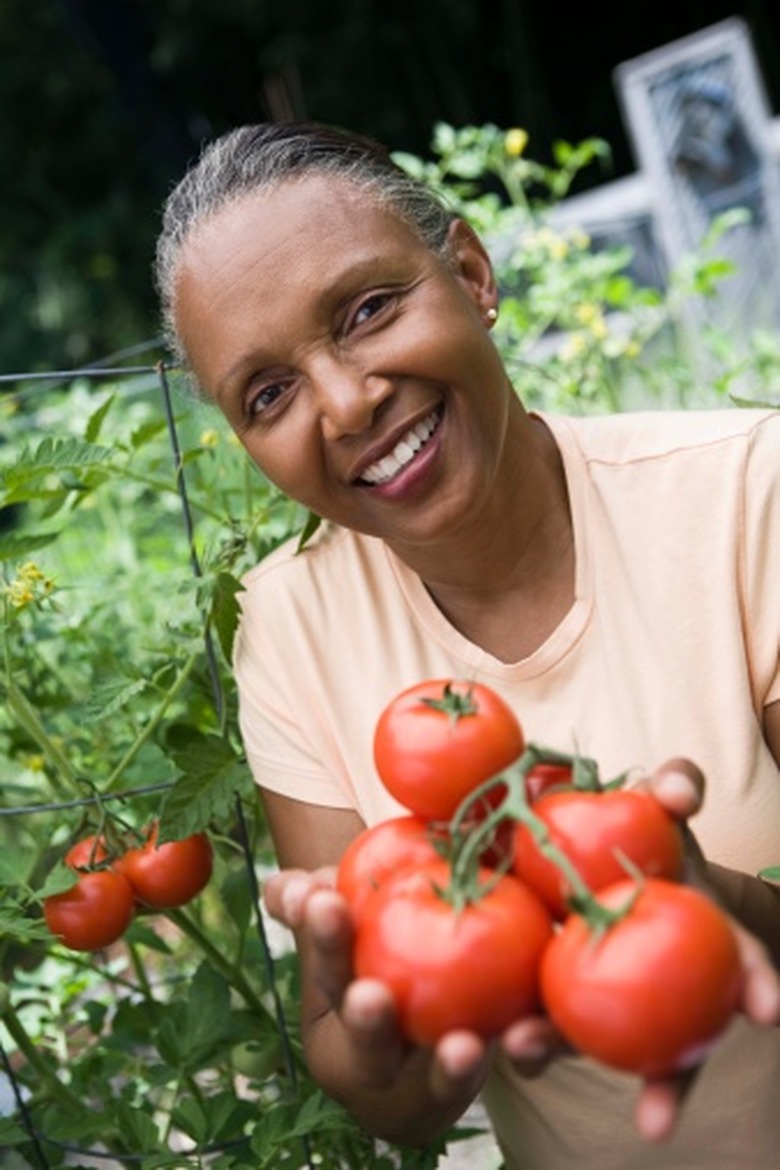Borax Uses For Vegetable Gardening
Borax is a sodium tetraborate, which is a crystalline mineral salt. Many gardeners use borax for their gardens for maintenance purposes. Borax is sold in most grocery and garden care centers. It is an organic solution to rid vegetable gardens of common pests like bugs and invasive plants. However, there are some cautions when using borax to treat vegetable gardens.
Ant Killer
Borax is an organic way to set up ant traps for vegetable gardens with these pests. Mix one cup of sugar and one cup of borax together, and then lightly sprinkle the mixture around the anthills. The sugar and borax look identical, and therefore ants will carry it into the colony. Borax is poisonous to ants, so one treatment should wipe out the colony.
Boron Deficiency
Vegetable plants can suffer from boron deficiency. Hollow stalks in broccoli and black spots in beets and other vegetables may indicate a lack of boron. However, strawberries, carrots, cauliflower and cabbage also suffer boron deficiencies. Borax supplies boron to these deprived plants, by adding 1 tbsp. per 100 square feet of household or agricultural grade borax to soil.
Weed Control
Ground ivy or creeping Charlie is a perennial weed that chokes grass. It can wander into vegetable gardens. Borax is an effective herbicide for creeping Charlie. Dissolve 10 oz. of borax in 4 oz. of warm water. Add the solution to 2.5 gallons of water. Fill a sprayer with the borax mixture and began spraying your lawn, up to 1,000 square feet with this mixture. With this method, be careful not to spray your garden directly. This is a preventive measure to ensure the weeds do not creep into your vegetables.
Warning
When applied to garden soil in small doses, borax enriches soil and prevents pests. However, too much borax leads to toxicity in vegetables. Boron builds up in soils and remains up to 3 years. Soil tests are recommended before adding borax. Treat garden soil with borax only once every 3 years if there is a boron deficiency.
